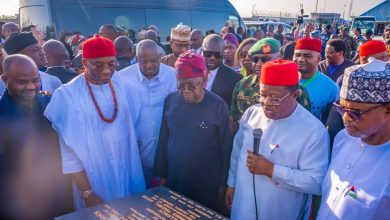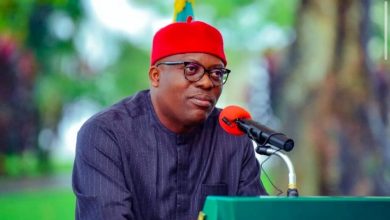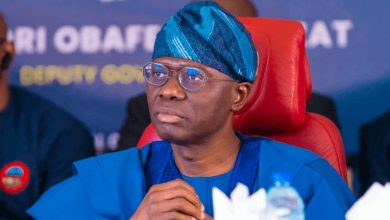Presidency Defends Tinubu’s ₦34 Trillion Loan Request, Says Borrowing Not a Crime
The Presidency has defended President Tinubu’s fresh ₦34.15 trillion loan request, saying borrowing is not a crime when used for development.
Officials insist that with proper utilization, loans can drive economic growth and infrastructure, urging Nigerians to embrace realism about the country’s financial capacity and pressing needs.
The Presidency has defended President Bola Ahmed Tinubu’s recent move to seek approval from the National Assembly for additional loans amounting to ₦34.15 trillion. It maintained that borrowing, when applied wisely, is a valid tool for national development and should not be viewed as a wrongdoing.
This clarification follows public criticism over the administration’s rising appetite for both domestic and foreign borrowing. Responding to concerns about Nigeria’s growing debt, Special Adviser to the President on Information and Strategy, Mr. Bayo Onanuga, stated that borrowing in itself is not the issue.
“It is not a sin to borrow. Even countries like the United States and the United Kingdom borrow beyond their GDP levels,” Onanuga explained. “What matters is how the funds are used. We should stop pretending about our reality. Nigeria is a poor country with a massive population, and our national budget is still smaller than that of South Africa. Without borrowing, we cannot realistically fund key priorities.”
Onanuga noted that despite the challenging economic terrain inherited by the administration, progress has been recorded in terms of reforms and inclusive programs. He acknowledged that the first year of the Tinubu-led government was marked by serious economic difficulties such as rising inflation and currency volatility, but stated that recent macroeconomic indicators point to improvement.
“Today, there is significant progress. Institutions like the World Bank and the International Monetary Fund have recognized our efforts. The Nigerian Stock Exchange All Share Index, for example, has risen from 50,000 points in 2023 to over 110,000 in 2025,” he said.
He further revealed that the country’s foreign reserves now stand at 21 billion dollars, a major improvement compared to previous figures. Debt servicing has also seen a reduction, dropping from 97 percent of government revenue to below 60 percent. This shift, he added, has allowed the government to allocate more funds to social services.
Highlighting strategic initiatives, Onanuga mentioned the use of Public-Private Partnerships (PPPs), tax credits, and matching grants to states for infrastructure projects. He said these have contributed to financing roads and housing.
The student loan initiative under the Nigerian Education Loan Fund (NELFUND) has also made an impact, with over 600,000 students benefiting so far. The government, according to him, is laying the foundation for industrial growth through investment in technical education and expanded financial access.
Addressing the widespread economic hardship facing Nigerians, Onanuga assured that the government is actively rolling out targeted measures. He pointed to bulk procurement of essential medicines, support for agriculture, and the adoption of Compressed Natural Gas (CNG) for transport as steps taken to alleviate the pressure on citizens.
“For example, some drivers who used to earn ₦10,000 a week now make that much daily due to savings from CNG use,” he said. “In addition, President Tinubu recently approved a six-month duty waiver for rice imports. This was a strategic step to reduce food prices and counter hoarding.”
Onanuga emphasized the need for Nigerians to adopt a more realistic view of the nation’s economic situation. He pointed out that expectations must be adjusted in line with the country’s actual capacity.
“Nigeria is not as wealthy as many think. With limited resources and a growing population, we must recalibrate our ambitions,” he stated.
Adding to the conversation, the Special Adviser to the President on Public Communication, Mr. Sunday Dare, supported the rationale behind borrowing. He noted that transformative infrastructure projects cannot be executed without external funding.
“You cannot build highways from Lagos to Calabar or Sokoto to Bida without loans. These projects revive regional economies,” Dare said. “Debt itself is not the enemy. Waste is. If properly utilized, borrowing becomes a powerful instrument for national progress.”



